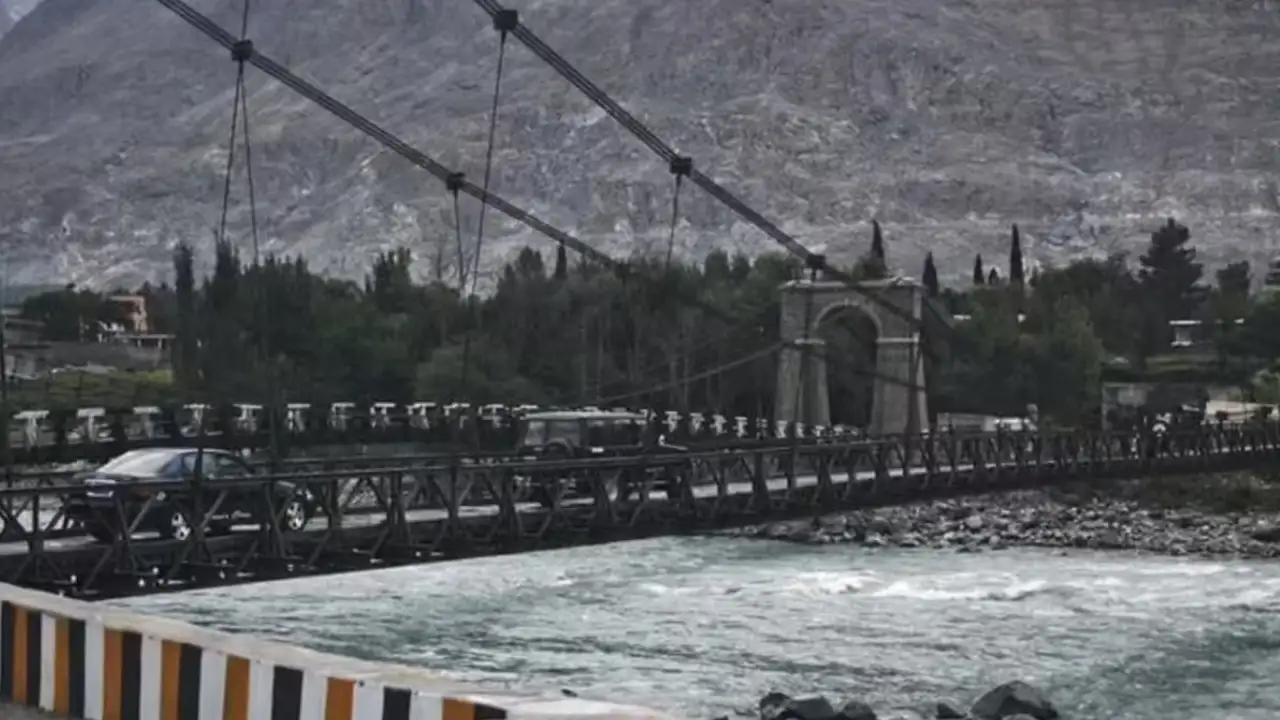JK CM Pursues Central Approval for Tulbul Barrage in Strategic Shift

Jammu and Kashmir Chief Minister Omar Abdullah has called on the Indian government to expedite two significant water infrastructure projects: the Tulbul Navigation Barrage in north Kashmir and a water-lifting scheme from the Chenab River for Jammu. This appeal follows the suspension of the 1960 Indus Waters Treaty (IWT) by New Delhi, a decision taken in response to terrorism linked to Pakistan. Abdullah’s request highlights the urgent need for improved water management in the region, particularly after the recent Pahalgam terror attack that claimed 26 lives.
Suspension of the Indus Waters Treaty
The Indian government’s decision to suspend the Indus Waters Treaty came after the tragic terror attack in Pahalgam on April 22, which primarily targeted tourists. This suspension allows India to explore new water management initiatives on rivers that were previously reserved for Pakistan. Under the treaty, India has rights to the waters of the eastern rivers—Sutlej, Beas, and Ravi—amounting to approximately 33 million acre-feet (MAF). In contrast, Pakistan holds rights over the Indus, Jhelum, and Chenab rivers, which collectively carry around 135 MAF annually. Abdullah has long criticized the IWT, describing it as an unfair agreement that restricts Jammu and Kashmir’s ability to manage its water resources effectively.
Reviving the Tulbul Navigation Barrage
Abdullah emphasized the importance of reviving the Tulbul Navigation Barrage, also known as the Wullar Barrage, located in Sopore, north Kashmir. The project, initially approved in 1986, faced delays due to objections from Pakistan and was halted in 1987. Although India attempted to revive the project after the 2016 Uri attack, negotiations with Pakistan have stalled. Abdullah stated that the installation of drop gates at the barrage would help regulate water levels in the Jhelum River, facilitating navigation and enhancing winter power generation at downstream hydroelectric stations. He believes that this project could significantly boost electricity generation during the winter months while also improving navigation.
Chenab Water Supply Scheme for Jammu
The second project Abdullah is advocating for is the Chenab Water Supply Scheme, aimed at alleviating water scarcity in Jammu city. He pointed out that the Chenab River, which flows near Akhnoor, could serve as a sustainable source of drinking water for the region over the next two to three decades. The Jammu and Kashmir government has already initiated discussions with the Centre regarding this project. A senior advisor to the Prime Minister recently visited the Union territory to assess both the Tulbul and Chenab proposals. Abdullah has also requested permission to engage international funding agencies to support the Chenab project, which would involve lifting water from the river and distributing it across the district to meet the increasing demand for drinking water.
Current Water Challenges in Jammu
Currently, Jammu, the winter capital of the region, relies on the Tawi River for its drinking water supply. However, the Tawi’s capacity has been insufficient to meet the growing needs of the population. Abdullah’s administration views the Chenab lift scheme as a crucial alternative to ensure a reliable water supply. The urgency of these projects is underscored by the increasing water stress faced by the region, making it imperative for the government to act swiftly to secure the necessary infrastructure for sustainable water management.
Observer Voice is the one stop site for National, International news, Sports, Editor’s Choice, Art/culture contents, Quotes and much more. We also cover historical contents. Historical contents includes World History, Indian History, and what happened today. The website also covers Entertainment across the India and World.
Follow Us on Twitter, Instagram, Facebook, & LinkedIn

